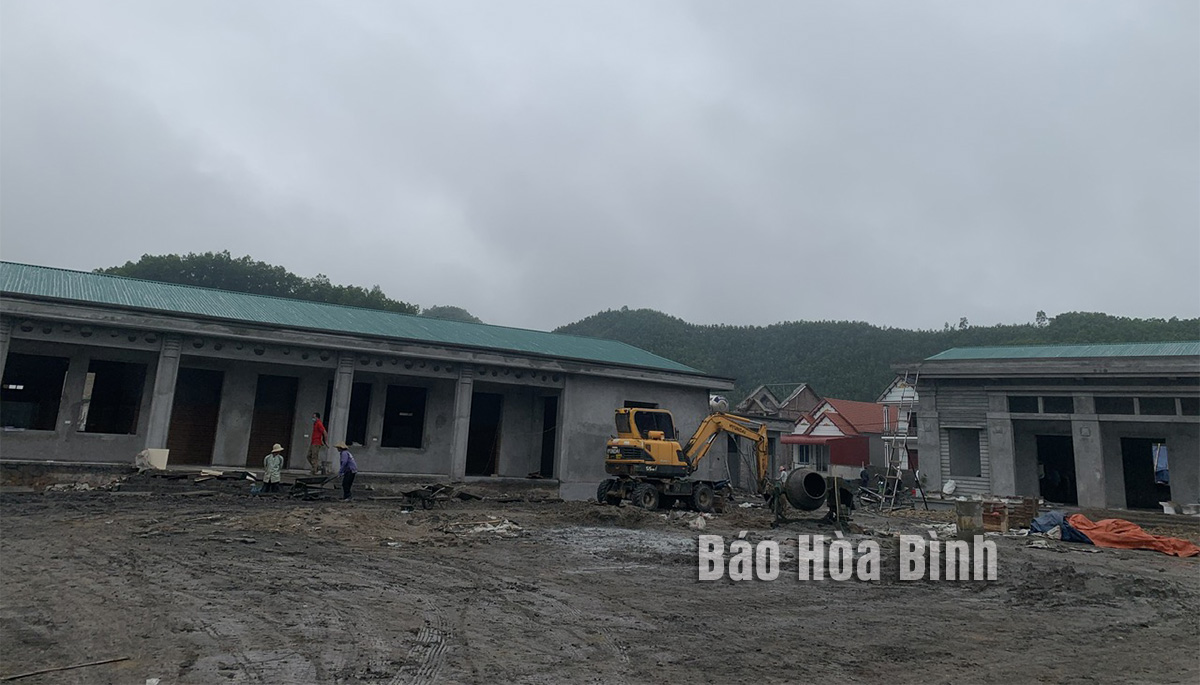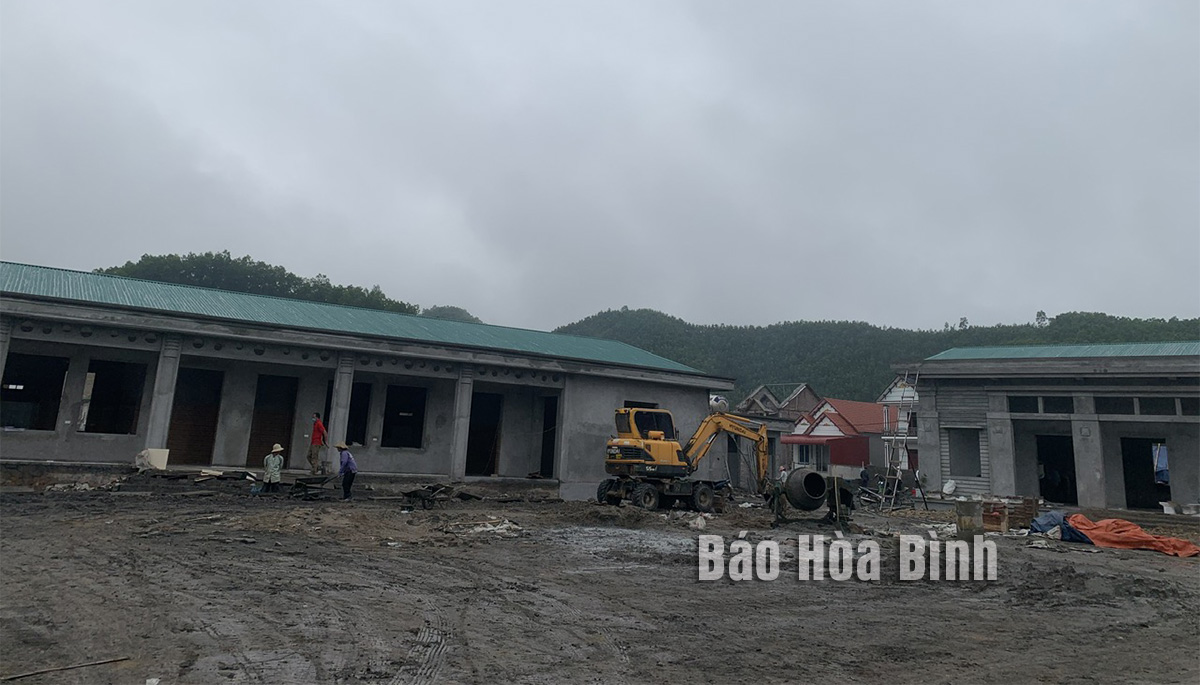
For many years, Hoa Binh province has effectively integrated ethnic policies into new-style rural building, contributing to giving facelift to, and improving the material and spiritual life of ethnic minority communities in the locality.
Roads in Tu Ly commune in Da Bac district
have been paved with concrete, helping facilitate trade and promote
socio-economic development.
Tu Ly commune in Da Bac district has experienced
rapid changes in recent years, with concrete roads, many new, spacious, and
modern houses, and various production models that rake in hundreds of millions
of dong each year.
These prove that the district has effectively
integrated programmes and projects, including the national target programmes on
new rural area building, sustainable poverty reduction and socio-economic
development in mountainous and ethnic minority-inhabited areas.
Dinh Cong Tuyen in Tinh hamlet, Tu Ly commune –
the owner of a mushroom farm that earns hundreds of millions of dong per year,
said that implementing the national target programmes, Da Bac district has
mobilsed many resources for infrastructure development; and put in place
programmes and projects in support of ethnic minority groups in production,
contributing to improving their material and spiritual life.
Da Bac is home to five ethnic groups, namely
Tay, Muong, Dao, Thai, and Kinh, with ethnic minorities accounting for 89.72%
of the local population.
According to Ban Kim Quy, Vice Chairman of the
district People's Committee, in the 2021-2025 period, the locality has implemented
the national target programme on socio-economic development in ethnic
minority-inhabited and mountainous areas with total funding of over 484 billion
VND (over 19.45 million USD).
As a result, 100% of roads to commune centres,
99% of roads to villages, 84% of village and hamlet roads, 79% of alley roads,
and 50% of main intra-field roads are concretised. The health station system is
relatively well-built, with 15 out of 17 communes meeting national health
standards.
Thanks to efforts by all-level Party Committees,
authorities, organisations and people, the socio-economic situation of ethnic
minority-inhabited areas in the province has seen improvements, and national
defense - security, and social order and safety have been maintained. The province’s agriculture sector reported that
since 2021, over 16 trillion VND has been mobilised for the national target
program on building new-style rural areas.
As of the end of June, 80 out of 129 communes in
Hoa Binh had met the new rural area criteria; 28 recognised as advanced
new-style rural communes, one model new-style rural commune, 75 model
residential areas, and 258 model gardens.
The emulation movement "Hoa Binh joining hands to build new-style rural areas” has been widely spreading, becoming a driving force that motivates the localities to renew rural landscapes and improve the material and spiritual lives of the residents. In this movement, the people play a central role-both as the main implementers and direct beneficiaries of its outcomes.
In response to the global digital revolution, Hoa Binh Newspaper is transforming itself into a modern and multi-platform media hub, blending cutting-edge technology with a restructured newsroom and a new generation of tech-savvy journalists.
Hoa Binh province’s Association of the Elderly recently held a conference to review the project on expanding the inter-generation self-help club model until 2025.
In a move to implement Resolution No. 57-NQ/TW, issued on December 22, 2024 by the Politburo, which targets breakthroughs in science-technology development, innovation, and digital transformation, the Hoa Binh provincial Department of Health has issued a plan to roll out the "Digital Literacy for All” campaign within the local health sector.
An Nghia Commune (Lạc Sơn District) is one of the communes that achieved the tha standard of the national new rural area in 2018. Entering a new development phase, the commune is now trying to meet the criteria for the advanced new rural development. With the strong political will and the public consensus, the commune is gradually overcoming the challenges to reach this goal, aiming for the sustainable development.



